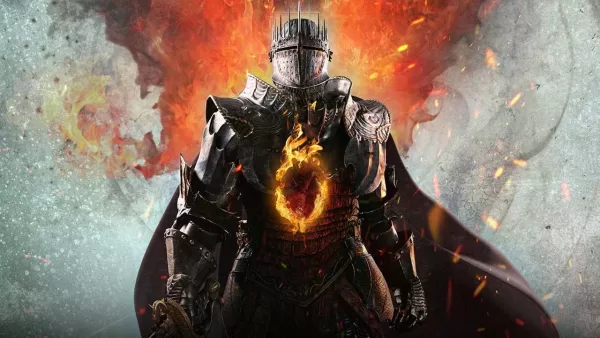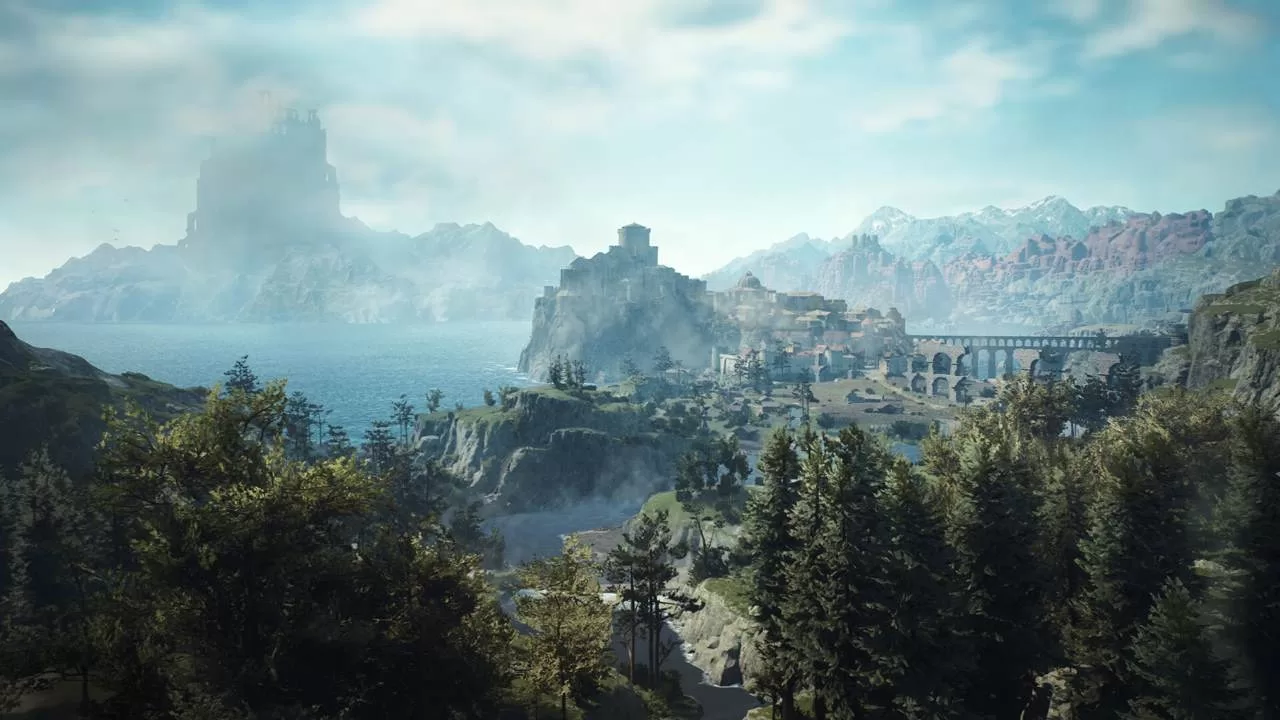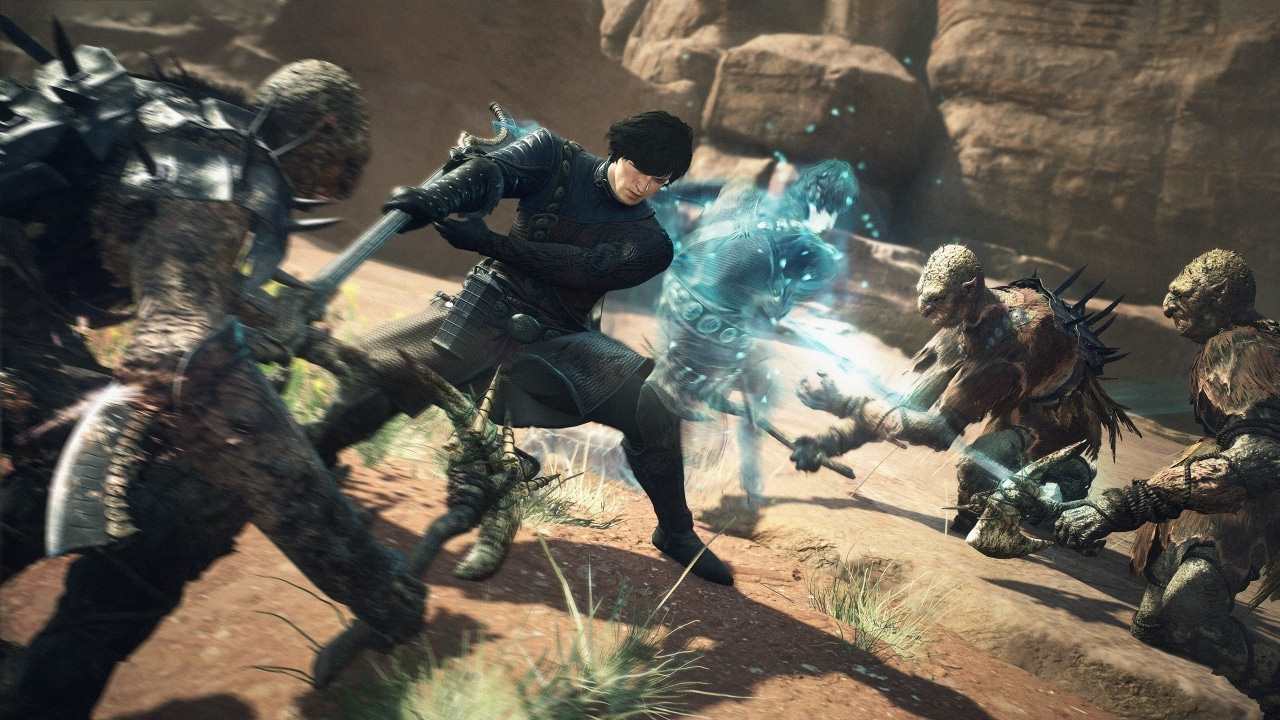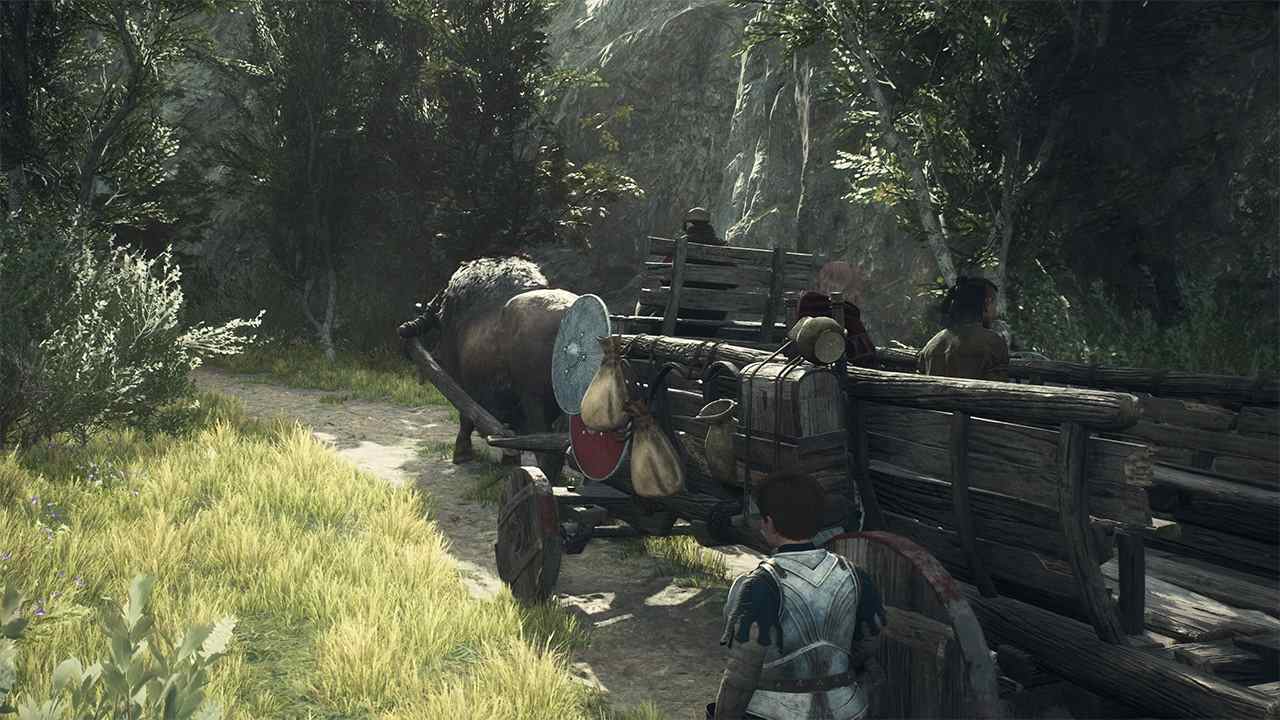Dragon’s Dogma 2 redefines what a modern RPG could be
If you're an RPG fan, Dragon's Dogma 2 is a must-play.

After 12 years and an entirely different console generation has passed, Dragon’s Dogma 2 is finally here. For years, Capcom has been fairly secretive about a follow up to the 2012 RPG. But it wasn’t like franchise director Hideaki Itsuno didn’t want to make a follow up to one of Capcom’s most beloved titles. It genuinely took that long to get the team together, gather the right resources, and schedules to open up in the studio. If the developers were going to tackle a Dragon’s Dogma sequel, they were going to do it right. As I’m sure you’ve heard by now, they most definitely did. Here’s why Dragon’s Dogma 2 redefines what a modern RPG could be.
Even if the game’s been out for a couple of days already, the sheer existence of it still feels surreal given how long the community was begging for a sequel. The original game was a smash hit, but it also had a lot of flaws. Players would have issues in the narrative structure and gameplay systems, a lot of which stemmed from the fact that Capcom was constrained by the technology at the time. 2012’s Dragon’s Dogma was a very ambitious title that didn’t exactly get to fully realize the vision it had for itself.
Dragon’s Dogma 2 is everything that the developers wish they could’ve done with the first game. It’s bigger, bolder, and more challenging in a lot of ways while also being so much more streamlined and refined. The crazy thing is a lot of the game’s systems are the complete opposite of what gamers are looking for in a modern RPG. This is not a game that holds your hand and tells you what to do. For some of us who have played and loved the original, it’s a fantastic experience. For those who are new to the franchise, it might take some adjusting.
There are two prominent conversations around the game right now. One is singing its praises as one of the strongest contenders for game of the year. The other is from players who aren’t fully connecting with the game’s more challenging elements. Even though we gave the game a glowing review, I can understand why some would think otherwise. I do have a sense that a lot of the hate comes from the fact that players misunderstand why the developers chose a less modern way to approach an RPG and went with a more old school route. I aim to take some of the more prominent criticisms and explain why some of the game’s “flaws” are actually its biggest strengths.
“It doesn’t have a fast travel system.”

Probably one of the most controversial aspects of Dragon’s Dogma 2. The game’s map is so much more expansive than the original. It’s filled with more secrets, locations, and content to discover. This is one of the major things that Itsuno and his team wanted to improve upon from the original. Given the number of open-world games we’ve played over the years, you’d think the map would be filled with markers and fast travel locations, right? Wrong.
Capcom wanted to create a world that’s worthy of exploration, not teleportation. The map of Dragon’s Dogma 2 is a perfect example of how to design environments in a way that tickles your curiosity just enough for you to take the extra step. The opening hours can be jarring, having to just run around with limited stamina. But once you start levelling up, spending more time taking it all in, you’ll notice a sudden shift. Suddenly, you don’t want to just get on with it and get to the quest marker. You start to realize that the journey itself is part of whatever quest you’re doing. The dangers you’ll face on the road, the people you’ll bump into, and the side routes that makes you think “hey, what’s over there?” It’s the unpredictability of it all that elevates the world of Dragon’s Dogma 2 into so much more than just another RPG map.
The world feels so alive with the myriad of systems that shift world events in a way that is only unique to your current playthrough. There are little to no scripted moments here. When a cyclops suddenly appears and your party is barely hanging on, only for you to lure it onto a cliff and it suddenly falls to its death. When you’re just trying to buy some gear in a local town’s market only for a griffin to swoop in and terrorize its citizens. What if you’re just about to take a much-needed rest in a campsite to wait out the night, only for a group of wolves to show up and raid your gear? These are but a fraction of what can dynamically happen in your playthrough, and it makes you pay attention to the world so much more.
There is fast travel in Dragon’s Dogma 2. It’s just that it’s not some random time skip. You can either use a Ferrystone and teleport to a discovered Port Crystal or hire an Ox wagon to travel on. But I’ll be honest, I barely used any of these in the 50 hours I’ve spent so far in the game.
Development of the map of Dragon’s Dogma 2 wasn’t spent trying to balance the distance of fast travel points. It was spent trying to fill the world with interesting things to discover and experience. This is an RPG that wants you to go for that unknown adventure and come out on the other side with a reinvigorating sense of wonder, danger, and empowering satisfaction.
“Combat does not have a lock on mechanic.”

If the combat in the first game wasn’t good, I don’t think the game would be successful enough for us to see the sequel right now. Take the guy who made the Devil May Cry games and make him create a fantasy RPG filled with giant monsters and sprinkle in some Shadow of the Colossus in there and you get awesome, which we can call the Dragon’s Dogma games as well. As cool and as satisfying the action is here, there are people complaining about the lack of a lock-on mechanic.
If you’ve been playing a third-person action game for the past few years, having the ability to lock-on an enemy is basically non-negotiable. But, keeping up with Capcom’s commitment to stay true to the core design principles of the first game, you won’t be focus targeting anyone on Dragon’s Dogma 2. How is this a good thing? Because it forces you to pay more attention with everything else in the encounter.
Isolating your focus on a singular enemy will only make the game’s action lose a lot of its scale and depth. Being constantly aware of your surroundings and being able to react accordingly is what determines whether you live or die in the game. It’s a thrilling feeling to be had. Notice how in games that allow you to lock on, you usually just wait for the enemy to engage so you can either block, dodge, or parry. It feels more like you’re taking turns rather than having a go at it in real time. The combat in Dragon’s Dogma 2 does an excellent job at throwing you down in the middle of it and making you feel its frantic energy. It’s exhilarating.
“The limited carry weight is too limiting.”

When it comes to RPGs, one of the main driving forces of progression and player satisfaction is the loot itself. Getting better gear, resources, and special items are core to the experience. So why is it that the weight system in Dragon’s Dogma 2 seemingly discourages carrying more stuff?
I will admit that encumbrance systems are one of the most annoying things to deal with in video games. But, here in Dragon’s Dogma 2, it actually enhances the gameplay. The game is less of a skill-based experience but rather a preparation game. Before you step out into the woods again, you have to take into consider what to bring in terms of curatives, Wakestones, Ferrystones, camp packs, gear, etc. It becomes a thoughtful mental practice of knowing what to sacrifice and leave behind in favor of what you will be bringing with you, depending on the quest that you want to do. And if something unexpected happens, then your ability to adapt and make best with your current situation is where some of the best moments of the game will come from.
This also makes you more conscious about what resources you would be picking up while deciding on ingredients to combine to reduce the quantity being carried for crafted items that you and your pawns can use.
Should you want to avoid over burdening your main character, you can always have your 3 other pawns carry items with them. There’s also a strategic element to this as they can use certain items for their benefit or the benefit of the party. If you’re in dire need of health, one of the pawns can heal you, as long as you provided them with curatives, or they were able to combine ingredients that they found on the road.
Your inventory is more than just a random dumping site. Managing it well before you set out on a new adventure will make all the difference and increase your chances of coming back alive and a lot richer than when you left.
Dragon’s Dogma 2 is a title that takes a while for it to truly demonstrate how special it is. Especially to newcomers. What could be considered a cryptic or annoying gameplay mechanic can end up being the reason why it provides a much more unique, profound, and complex experience that we rarely get from major AAA releases. This is a game that is not afraid to be different from the norm. And that’s exactly why it’s so special.


